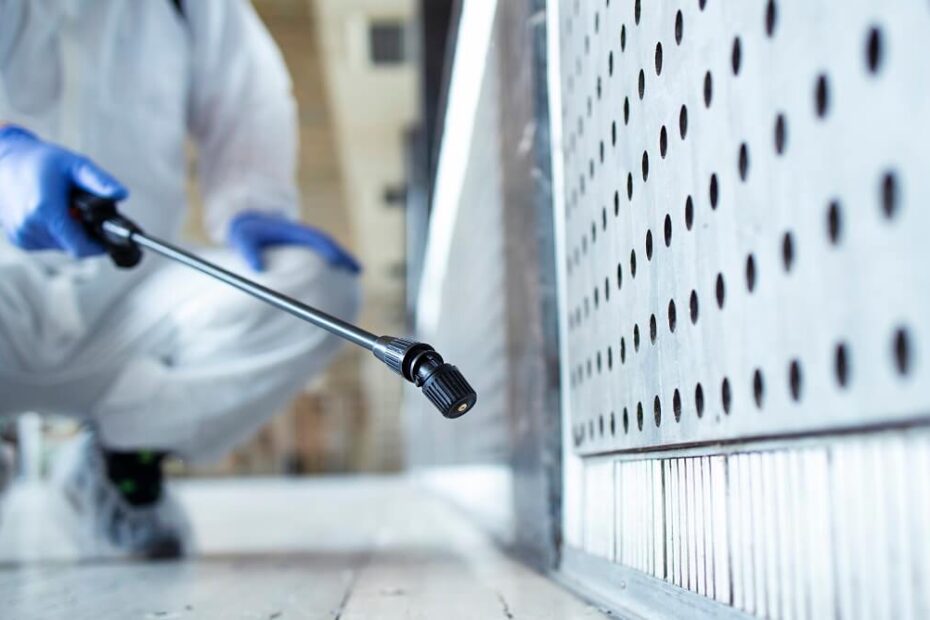Pests can be a major problem in rental properties. They not only cause damage to the property but can also lead to health and safety hazards for the tenants. As a landlord, it is your responsibility to keep your rental property pest-free. The pest control services use eco-friendly methods that are safe for your family, pets, and the environment. In this article, we will provide you with some tips on how to prevent pests in your rental property.
Pests such as rodents, insects, and other small animals can wreak havoc on rental properties. They can damage the structure, cause health hazards for tenants, and lead to costly repairs. As a landlord, it is your responsibility to ensure that your rental property remains pest-free. In this article, we will provide you with some tips on how to prevent pests in your rental property.
Understanding Pests
Before we delve into how to prevent pests, it is important to understand what pests are and how they can impact your rental property. Pests are defined as any organism that can cause damage to the property, spread diseases, or cause a nuisance. Some common pests found in rental properties include rodents, cockroaches, ants, bed bugs, and termites.
Common Pests Found in Rental Properties
It is important to understand the common pests found in rental properties, as this can help you identify any potential infestations. Some common pests found in rental properties include:
- Rodents such as mice and rats
- Cockroaches
- Ants
- Bed bugs
- Termites
- Fleas
- Spiders
- Flies
Signs of Pest Infestation
As a landlord, it is important to be able to identify the signs of a pest infestation. Some common signs of a pest infestation include:
- Droppings or urine stains
- Gnawed wires or wood
- Holes in walls or floors
- Foul odors
- Scratching or scurrying noises
- Sightings of live pests
The Importance of Pest Prevention
Pest prevention is important for several reasons. First, pests can cause damage to the property, which can be costly to repair. Second, pests can cause health hazards for tenants, particularly if they spread diseases or cause allergic reactions. Finally, pest infestations can be a major headache for landlords, as they can lead to tenant complaints, negative reviews, and even legal issues.
How to Prevent Pests in Your Rental Property
There are several steps you can take to prevent pests in your rental property. Here are some of the most effective methods:
Keep the Property Clean
Keeping your rental property clean is one of the most effective ways to prevent pests. Make sure to clean up any spills, crumbs, or other food debris as soon as possible. Store food in sealed containers, and keep garbage cans tightly sealed. Make sure to clean behind appliances and in other hard-to-reach areas.
Seal Entry Points
Pests can enter your rental property through small cracks and gaps. Make sure to seal any entry points, including around doors, windows, and pipes. Use caulk or weatherstripping to seal gaps, and install door sweeps to seal gaps under doors.
Use Pest Repellents
There are several pest repellents that you can use to keep pests at bay. These include sprays, baits, and traps. When using pest repellents, make sure to follow the instructions carefully and keep them out of reach of children and pets.
Schedule Regular Pest Control Services
One of the best ways to prevent pests is to schedule regular pest control services. A professional pest control service can identify and treat any pest infestations, and provide ongoing prevention measures to keep pests from returning.
Educate Your Tenants
Finally, it is important to educate your tenants on how to prevent pests. Make sure they understand the importance of keeping the property clean and provide them with information on how to identify and report any pest problems. You can also provide them with tips on how to prevent pests, such as storing food properly and sealing entry points.
Conclusion
Preventing pests in your rental property is essential for keeping your tenants happy and healthy, and for avoiding costly repairs. By keeping your property clean, sealing entry points, using pest repellents, and scheduling regular pest control services, you can effectively prevent pest infestations. Additionally, educating your tenants on pest prevention can help them to do their part in keeping the property pest-free. Remember, prevention is key when it comes to pest control, so don’t wait until you have a problem to take action.
